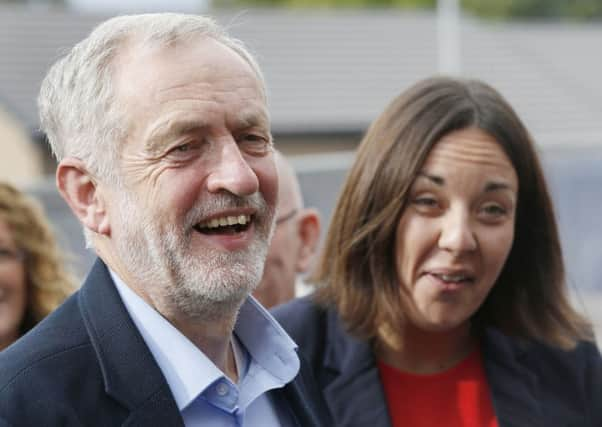David Maddox: Jeremy Corbyn is far from ‘anti-British’


Much has been said about Jeremy Corbyn’s patriotism or lack thereof, not least in the ferocious attack by Prime Minister David Cameron last week as he described the new Labour leader as “a terrorist sympathiser and anti-British”. The basis of Mr Cameron’s outburst was that Mr Corbyn said it was a “tragedy” al-Qaeda boss Osama bin Laden – responsible for the Twin Towers atrocity in New York – had been assassinated by the US. No doubt the Prime Minister was also referring to Mr Corbyn’s well-publicised republican, anti-monarchy views and discomfort at singing the UK national anthem or bowing and scraping to become a Privy Councillor.
But while it is reasonable to dislike Mr Corbyn’s beliefs it is wrong to describe him as anti-British. To suggest, for example, that being anti-monarchy is being anti-British would put a large proportion of the population in that camp. And is it anti-British to try to look at more than one side of an argument and find common ground with apparent enemies? That would probably have made Neville Chamberlain anti-British, even though when he signed the Munich Pact with Hitler he believed he was doing it in the national interest and was welcomed home by cheering crowds. It might also suggest Margaret Thatcher was anti-British for cutting a deal with the odious Robert Mugabe to end the Rhodesia crisis.
Advertisement
Hide AdAdvertisement
Hide AdBut more than that, a close look at Mr Corbyn’s politics makes it clear that the Labour leader is in fact the modern-day heir to a very British radical tradition which saw its first real flowering in the English Civil War with groups like the Levelers and has through time shaped our democracy, even though those who were torch bearers were invariably seen as extremists. The Levelers in England and the Covenanters in Scotland, both of whom fell foul of Oliver Cromwell’s wrath, were products of a period which saw a surge in support to end the monarchy and bring in universal suffrage. That “hard left” tradition was carried on by others, including the famous thinker Thomas Payne, who wrote The Rights of Man and influenced the American Revolution, itself largely driven by those who had taken the beliefs of the Civil War across the Atlantic.
In the 19th century the baton was picked up Chartist Movement, whose views on votes for all and abolishing the House of Lords were treated by the establishment as a dangerous fringe.
Then, in the 20th century, it moved on to elements of organised Labour and the trade union movement and had a cultural flowering in the folk music scene with artists like Ewan MacColl and latterly John Tams (more widely known for acting in the Sharpe TV series and for writing its theme music).
In the 1930s it saw many British men like the author George Orwell go to fight against the Fascists in the Spanish Civil War. Then, in the 1980s, it underpinned the Bennite politics of the 1970s and 1980s.
At the heart of it was the old Presbyterian belief that everyone was equal and should be given an equal chance while opposing the establishment and those who sort to exert power because of who they were and what they owned. It was redistributive and essentially socialist. A tradition made and sustained in the British Isles.
So while you can say many things about Jeremy Corbyn’s politics – probably unelectable, on the far left, dangerously close to terrorists – it is unfair and wrong to describe him as anti-British. His politics underlines that the beauty of Britain is that it has many different and often competing traditions which should be treated with the respect they deserve.